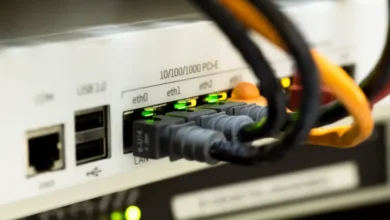Top 10 Strategies for Successful Infrared Thermography Training

Infrared imaging is a potent technique, crucial for pinpointing temperature variations and potential problems across multiple sectors like electrical, machinery, and building upkeep.
Yet, it’s paramount to possess adequate knowledge and skill to harness its full potential.
Untrained users might overlook essential details or misconstrue the data, spiraling into expensive oversights and potential risk zones.
Achieving proficiency in infrared imaging necessitates a commitment to specific practices to ensure the highest data accuracy.
This article highlights the ten paramount practices for mastering infrared imaging. We’ll delve into the science of infrared thermography training, equipment selection, and precise data collection.
Whether you’re an infrared thermographer or wish to polish your proficiency, these guidelines will ensure you utilize infrared imaging to its utmost. Let’s dive in:
1.Commence with Robust Basics
To flourish in infrared imaging, it’s pivotal to start with a thorough understanding of its basics. Mentors are invaluable at this stage, offering direction and invaluable resources. Understanding core concepts like heat diffusion, emissivity, and thermal detectors is crucial.
Guidance from experienced imentors offers invaluable insights into these foundational aspects. Additionally, acquainting yourself with industry standards and applications is key. Without mastering these basics, effectively sifting through infrared data might prove challenging.
Furthermore, a solid basis paves the way for advanced infrared techniques. An investment in foundational knowledge, facilitated by experienced mentors, ensures maximum returns from your infrared imaging education.
2. Prioritize Equipment Selection
The effectiveness of your infrared imaging training hinges on your equipment choice. High-caliber infrared detectors and tools not only simplify the learning curve but also promise precise thermal image recording.
Select devices best suited to the anticipated usage scenario and environment. User-friendly and intuitive gadgets enhance the training’s efficiency. Commit time to study various tools and lean on industry experts’ insights to make informed choices.
Smart equipment choices act as stepping stones to success in infrared imaging training.
3. Allocate Resources for Premier Training Content
High-grade educational content is paramount for mastering infrared imaging. When choosing resources, reflect on the content’s origin and the author’s expertise. Opt for recent, in-depth materials catering to your exact requirements.
Top-tier educational content often incorporates hands-on tasks and real-world scenarios. Consider resources that provide continual support, like digital discussions, seminars, and mentorship schemes.
Dedicating resources to high-quality content ensures access to the latest insights, priming you for success in infrared imaging.
4. Engage with Seasoned Experts
A critical practice for effective infrared imaging education is to engage with veterans in the field. Tap into the insights of adept thermographers to fathom infrared imaging nuances, from device handling to image deciphering.
Choose a recognized educational provider backed by instructors with deep industry roots and a track record of excellence. Also, consider joining industry events to network with peers, drawing from their experiences and guidance.
Engaging with seasoned experts offers an enriched understanding of industry norms and hones the required skills for becoming an adept infrared specialist.
5. Opt for the Apt Educational Course
Given infrared imaging’s intricate nature, it’s imperative to select an educational course that equips you with the requisite knowledge to conduct infrared analyses adeptly.
Opt for courses led by certified thermography experts, ensuring coverage of all pivotal topics, from infrared fundamentals and equipment handling to data interpretation and reporting.
Further, it’s beneficial if the course integrates practical training sessions for on-field experience. The right educational course acts as the bedrock for a fulfilling journey in the world of infrared imaging.
6. Delve into Practical Use Cases
Mastering infrared imaging necessitates immersion in authentic environments and scenarios. Central to excelling in this domain is a deep engagement with its everyday applications.
Trainees should encounter diverse conditions where infrared imaging proves pivotal. Engaging with real instruments and authentic situations augments their comprehension of infrared imaging principles and methodologies.
Such exposure also nurtures crucial analytical and decision-making competencies as they strategize on how to employ their insights across varying contexts.
Essentially, an emphasis on practical use cases furnishes students with the pragmatic know-how crucial for thriving as infrared imaging experts.
7. Regular Engagement is Key
The adage, “Repetition is the mother of skill,” holds true in infrared imaging training. Mastery in this realm mandates consistent engagement and evaluation.
It entails frequent inspections and an in-depth analysis of outcomes to pinpoint potential enhancements.
This iterative approach sharpens your expertise, fostering greater self-assurance in your role as an infrared specialist.
Moreover, it’s pivotal to pursue continued learning opportunities, given the ever-evolving nature of this domain.
A relentless dedication to refinement and acquisition of new insights paves the way for infrared imaging mastery.
8. Pursue Accreditation and Maintain It
A hallmark of expertise in infrared imaging is achieving and maintaining professional accreditation.
Given the dynamic nature of this discipline, staying abreast of cutting-edge methodologies, tools, and norms is imperative.
Accreditation avenues offer structured learning paths, corroborating your proficiency. Often, potential clients and employers see certification as a testament to your capability in executing infrared evaluations.
To sustain your accredited status, indulge in perpetual education, encompassing seminars, digital classes, reading industry-centric literature, and affiliating with professional bodies. By doing so, you assure clients of top-tier services while cementing your standing in the industry.
9. Forge Ties with Fellow Experts
In the realm of thermography, as with many professions, networking is instrumental. Establishing rapport with peers unlocks a trove of knowledge, potential career avenues, and collaboration opportunities.
For holistic infrared imaging training, weaving a network with fellow experts is invaluable. Participate in sector-specific congregations, join professional guilds, and participate in online discourse to foster ties.
Sharing and imbibing insights from others can catalyze skill enhancement and career progression. Such collaborative engagements ensure you’re in sync with the industry’s pulse, positioning you as a seasoned authority in the domain.
10. Commit to Continuous Enhancement
The world of infrared imaging is intricate and continually evolving. As innovations arise and novel use cases emerge, aligning with the latest in infrared imaging is vital. Hence, continuous learning and betterment stand out as central tenets for excelling in infrared thermography training.
This commitment encompasses frequent attendance at industry-specific events, training, and a diligent review of academic contributions. Additionally, regular practice and critique of thermal assessments further accentuate knowledge and skill.
Consistently seizing learning and refinement opportunities ensures infrared specialists amplify their acumen, optimize their deliveries, and offer superior outcomes for stakeholders.
Wrapping Up:
Infrared imaging stands as an indispensable asset across diverse sectors. But harnessing its might necessitates comprehensive training and expertise.
Adopting the aforementioned ten strategies ensures individuals are adeptly equipped to leverage this technology to its zenith.
By embodying these tenets, one not only acquires essential skills but also ensures currency with evolving techniques.
The outcome? Elevated safety standards, heightened operational efficiency, and fiscal prudence for enterprises.




